Tough stuff: para-cyclist vying for trip to Paris Paralympic Games
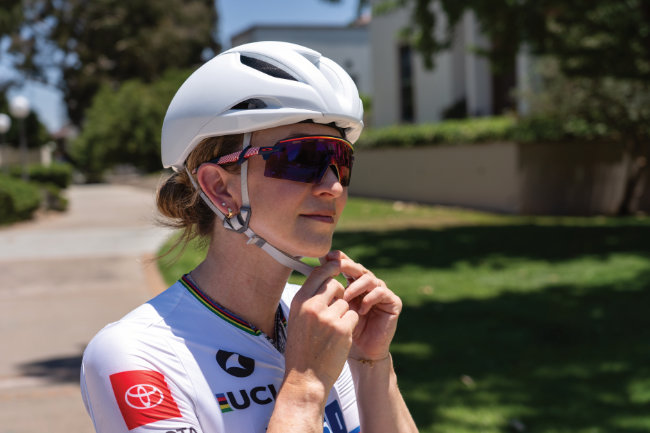
Para-cyclist Samantha Bosco has overcome a great deal to compete in the July 7 PossAbilities U.S. Paralympics Cycling Time Trial at Loma Linda University. With a good showing there the Claremont resident will qualify for the 2024 Paralympic Games in Paris. Courier photo/Matt Weinberger
by Lisa Butterworth
Etched on Samantha Bosco’s inner right forearm is a colorfully tattooed hummingbird, its wings spread, surrounded by small blue flowers. It’s more than just a beautiful piece of body art. For Bosco, a world champion in para-cycling — the sport of cycling adapted for athletes with disabilities — it’s a reminder of what she overcame when a bike accident, and subsequent traumatic brain injury, prevented her from cycling in the Tokyo Paralympics in 2021.
On July 7, the Claremont resident will compete in the PossAbilities U.S. Paralympics Cycling Time Trial, hosted by Loma Linda University of Health, the last selection event for this year’s Paralympic roster, with the hope that her next race will be in Paris.
Bosco’s love of cycling is nearly lifelong. It began 30 years ago, when she would ride to and from school, her dad alongside her, in her hometown of Anchorage, Alaska. “It was six miles one way,” she said. “And I just fell in love with it.” Soon after she joined the Arctic Bicycle Club, training and racing around the nearby Kincaid Park. “I was about 9 years old when I was going through the trails in one race and I just thought, I want to do this for a living. This is my dream. I want to be a professional mountain biker, travel the world, and do what I’m doing right now all over the place,” she said.
That dream seemed dashed, however, when Bosco, who had been born with a bowed shinbone, underwent a limb-lengthening surgery at the age of 11. Complications and errors left her crutch-bound for three years with permanent damage to her right leg. “I didn’t think I’d ever get to ride a bike again,” she said. She took up rowing as part of her rehabilitation and received a scholarship to the University of Central Florida, where she competed in the cutthroat world of college rowing until debilitating knee pain forced her to retire.
“I kind of spiraled because when you’re an athlete your whole life in some form or another, to not get to do that anymore — I just lost the foundation I was standing on,” she said. “So my dad found a way to get me on a bike again. He found a pedal system where I could build up my shoe on my right side so that when I’m on a bike, [my legs are] basically even length. I went for a bike ride, and it felt like coming home.”
Bosco began training and competing in “able-bodied” races, quickly reaching the highest level in road cycling just short of professional. That’s when she found out about para-cycling. “That opened the door,” she said. “I went all in.” Since 2012 Bosco has amassed a number of accolades, including five world titles and two bronze medals in the 2016 Paralympic Games in Rio de Janeiro.
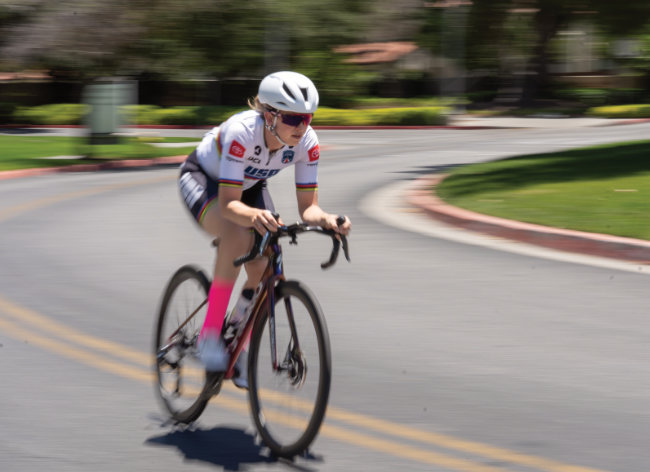
On July 7, Claremont resident and world class para-cyclist Samantha Bosco will compete in the PossAbilities U.S. Paralympics Cycling Time Trial at Loma Linda University, with the hope that her next race will be at the 2024 Paralympic Games in Paris. Courier photo/Matt Weinberger
In 2021, shortly after making the U.S. team heading to the Tokyo Paralympic Games, a terrible training ride crash fractured her skull in two places and resulted in a traumatic brain injury. “It was a long arduous process to have a new normal,” she said. And though she suffered from eye-tracking issues, equilibrium problems, and vertigo, among other symptoms, it was the mental and emotional recovery after realizing she wouldn’t be cleared to compete in Tokyo that was the most challenging aspect of the experience.
“If I walked out and saw my bike I started crying. I couldn’t watch any of the summer games, Olympic or Paralympic,” she said. “I was at such a high moment and had such high hopes and excitement for Tokyo that to fall that low, it was hard.”
Bosco calls it one of the darkest periods of her life. But she had the support of her husband, Andrew (the two own Bosco Bike Fits in Claremont), and family, including her mom, who set up a beautiful backyard recuperation area lined with plants and flowers. That’s where Bosco was sitting one day, when a hummingbird stopped to feed from one of the nearby blooms. “I’m just looking at the hummingbird like, wow, you’re so small in this big world, but you’re there humming away and thriving. It stopped me and I thought, I can do this,” she said. “I did some research and hummingbirds symbolize that challenging times are over, and joy and good things are coming. I took that to heart. Like, yeah, I’m okay. I’ll get through this. Keep moving forward.”
For Bosco that meant getting back on her bike, and within a year she had won some of those aforementioned world titles, all the while keeping her eye on the prize — qualifying for the Paris 2024 Paralympic Games.
The outcome of this weekend’s time trial will be the deciding factor.
That she doesn’t have to travel to compete in it makes the event even more exciting. “This is the first time that I can remember being able to wake up in my own house, have my own coffee, not have to break down a bike and put it in a bike box to travel with, and actually get to show up a little bit more relaxed, because I have familiarities of home,” she said.
All of which puts Bosco in an even better position than she’s already in to snag one of the spots on Team USA. For a while, getting to Paris meant getting another shot at what she could’ve done in Tokyo. But Bosco’s feelings have shifted.
“Now, I look at Paris as, I want a shot to show how much better I am because of the injury — how much better I am as an athlete, as a person, as all of the things,” she said. “And I want Paris to be my chance to just enjoy that I’m still here getting to ride my bike.”
The PossAbilities U.S. Paralympics Cycling Time Trial will take place at 8 a.m. Sunday, July 7, on the Loma Linda University of Health campus. It is open to the public.


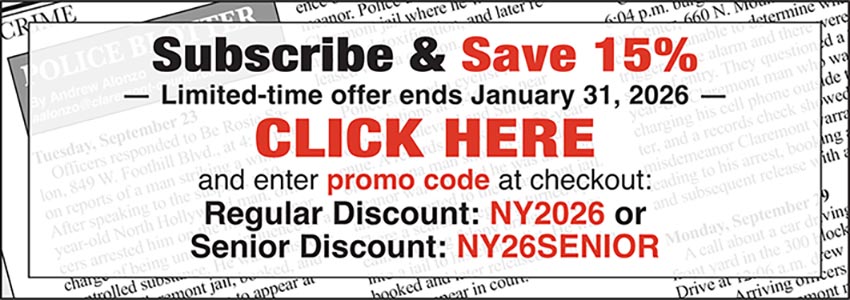
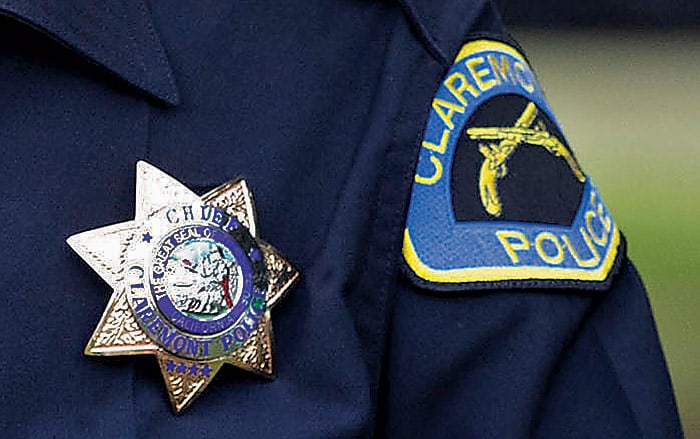

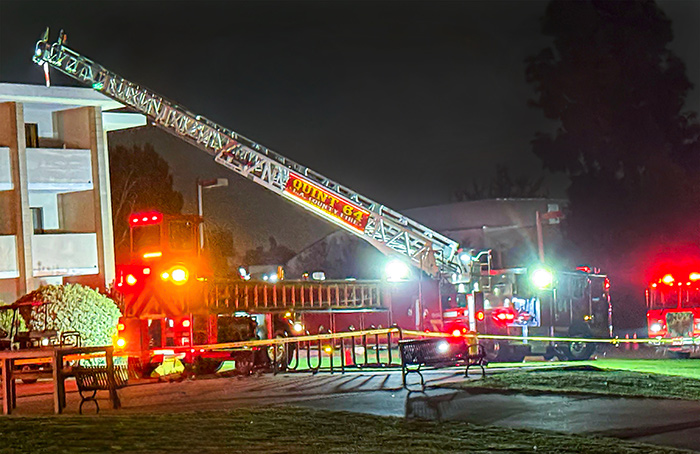
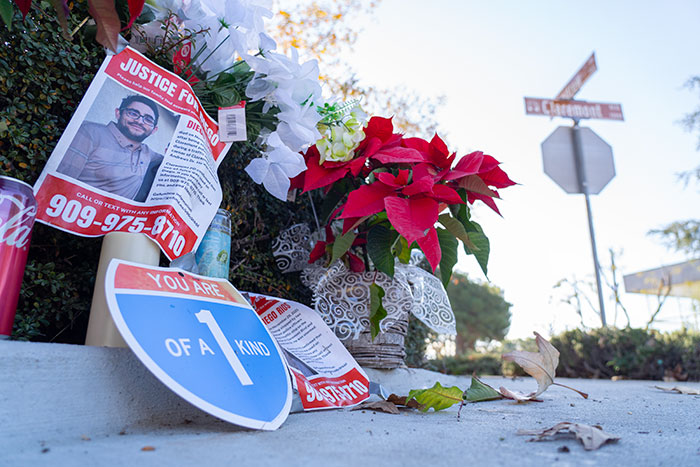
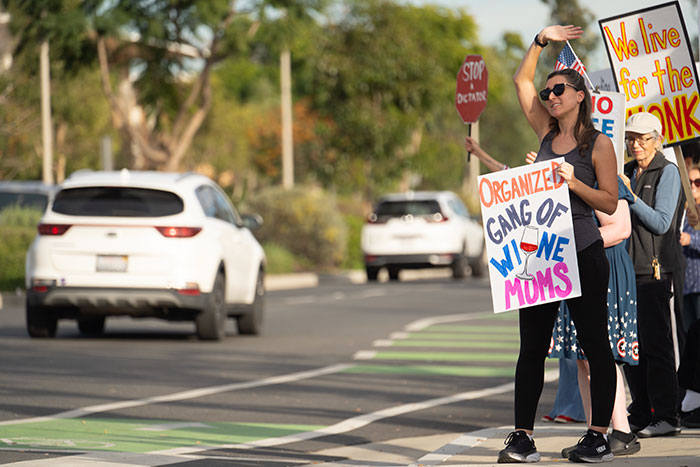
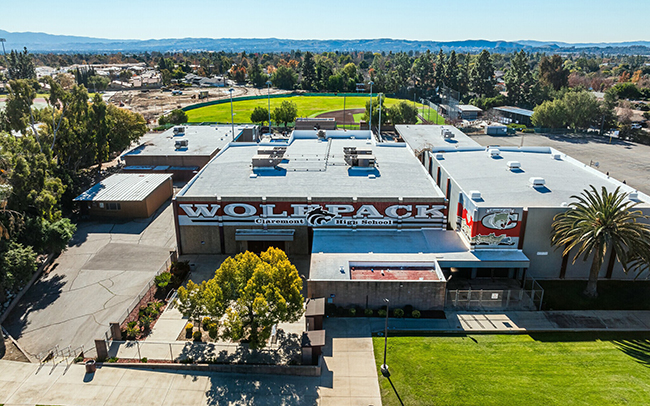

0 Comments